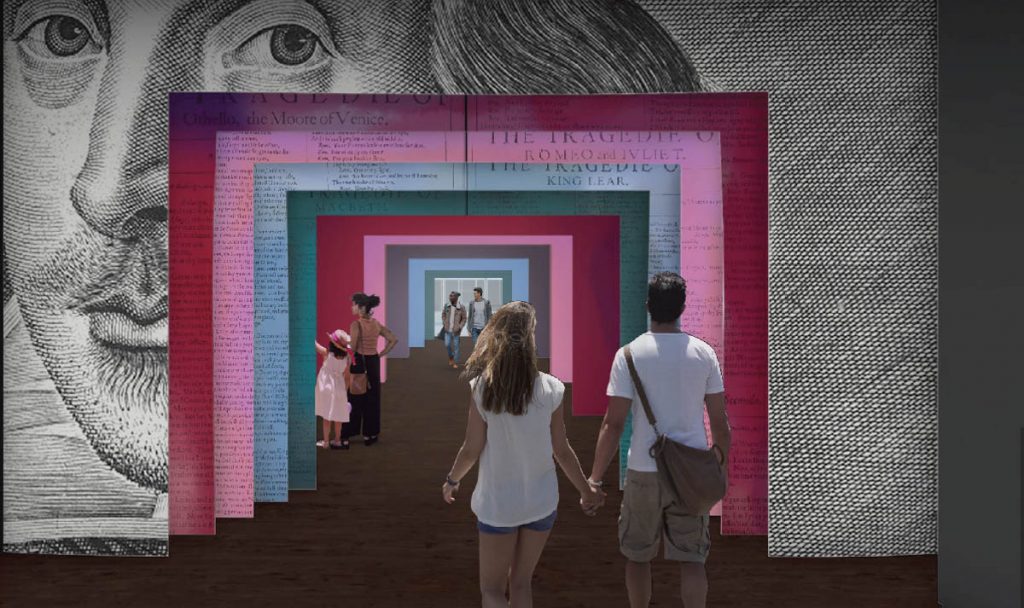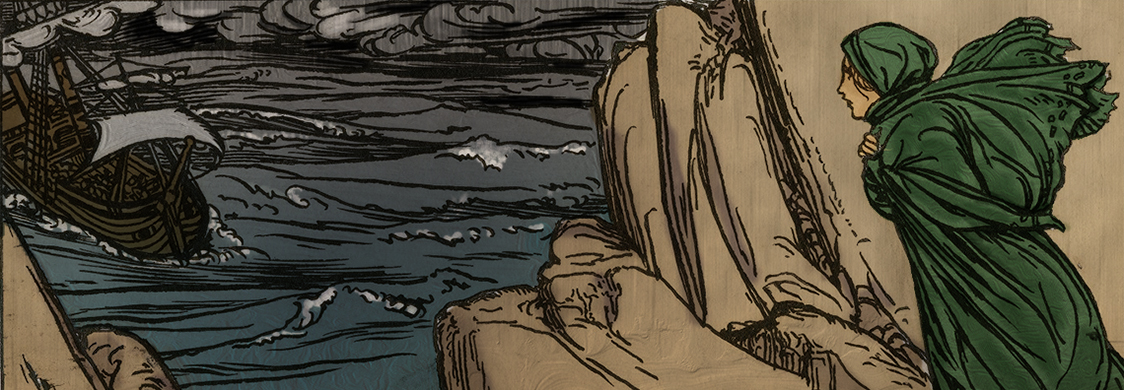Shakespeare Organizations during COVID-19: The Folger Shakespeare Library
 In the coming weeks, we will be looking at how recent social distancing has impacted and continues to affect Shakespeare organizations around the world. We hope to highlight both how difficult this season is for many groups and the creative ways they’re overcoming those difficulties. Read below for more from Executive Director of the Folger Institute Kathleen Lynch.
In the coming weeks, we will be looking at how recent social distancing has impacted and continues to affect Shakespeare organizations around the world. We hope to highlight both how difficult this season is for many groups and the creative ways they’re overcoming those difficulties. Read below for more from Executive Director of the Folger Institute Kathleen Lynch.
 First, for anyone who might be unfamiliar, tell us a little bit about the mission of your organization.
First, for anyone who might be unfamiliar, tell us a little bit about the mission of your organization.
Many members of SAA are very familiar with the Folger, but it’s worth stating our mission as stewards of an extraordinary collection, interpreting Shakespeare and the early modern world for a broad public audience of students and teachers, professors and researchers, theater goers and Shakespeare enthusiasts. The Institute’s remit is to sponsor research opportunities and bring together intellectual communities around the Folger’s collections. The Institute marks its fiftieth anniversary in 2020-21. If there was any doubt about what it would mean to mark such an anniversary, now it is clear that it has to mean—always had to mean—a strong recommitment to our goals and values—even as we explore new methods for convening impactful conversations around scholars’ works-in-progress. One of the important ways we will do that is to be ever more inclusive in our understanding of those communities of discovery and curiosity.
COVID-19 has impacted everyone, but could you tell us a bit about the specific difficulties the Folger has faced during this time? Is there a way SAA members could help support the work that you are doing?


The Folger is undergoing an important multi-year renovation to its landmark building, with a goal of increasing accessibility, opening up new spaces for community engagement, and more purposeful flow of energies across our research, performance, and collections. When the coronavirus hit, the Folger had already had its last day of service in the reading rooms and its final performances in the theater.
Renovation renderings. Visit folger.edu/renovation for more images and information.
 What are some of the resources you have online that you would like everyone to know about?
What are some of the resources you have online that you would like everyone to know about?
The Institute already was launching some of our programs on the road and expanding digital opportunities for community like our virtual tea on Twitter every Thursday at 3 p.m. But pretty quickly we knew the need was much bigger than rescheduling April’s Shakespeare’s Birthday Lecture. We wanted to support teaching and distance learning by providing as many resources as we could. Almost immediately, we were trading online learning tips and virtual backgrounds over #FolgerTea. Our colleagues in Education were running Wednesday webinars for high school teachers. In fact, it was emails from teachers that inspired the Folger to make the filmed performance of Macbeth available on YouTube and stream the seven Folger Audio Edition recordings of Shakespeare’s plays, with Simon & Schuster Audio. The Folger also committed to continuing to produce our regular content, from our blogs to our Shakespeare Unlimited podcast, and continuing services like Ask a Librarian. Find all our resources on folger.edu.
This crisis has required a great shift for many organizations. Are there any lessons or changes you will implement after we have weathered COVID-19?
In a completely unexpected way, the pandemic has launched the Institute into a new way of doing our work. We already knew that would entail seminars and symposia with consortium partners and research fellowships that would take scholars to libraries and archives across the country and around the world. Plans were set for fall innovations, or so we thought. Now we are learning that much of our work will include much more virtual collaboration online, too. We are all challenged to find the potential for coming together virtually to connect and share, to learn, and to enjoy our community together.
As an institution, the Folger’s first priorities in response to this crisis have been a renewed commitment to our mission and staff as we undertake the renovations and plan towards a new normal. We all understand, and that includes the Folger Board of Governors, the need to keep developing new models and new energies in supporting the humanities for today’s society, even and especially in the face of massive disruptions to the U.S. and global economy. We are all learning to be flexible and responsive to our audiences and the discoveries along the way.
Across the Folger, we organized Shakespeare’s Birthday at Home, an online celebration as an expression of our commitment to all our communities. Partnering with the Royal Shakespeare Company, our global party invited enthusiast to #ShareYourShakespeare on social media; we received almost 11,000 Lego mash-ups of scenes, recreations of the bas reliefs along the front of the Folger, and even recitations of favorite lines from the plays by several dogs. The Folger also presented a day of virtual programs and discussions, from a panel conversation with Director Michael Witmore and Internet pioneer Vint Cerf on “Why Do Fabulously Creative People Like Shakespeare?” to a Before ‘Farm to Table’ talk by David Goldstein on “The Meaning of Meals in The Taming of the Shrew” to a preview conversation of our Birthday Lecture with Lafayette College’s Richard H. and Joan K. Sell Chair in the Humanities Ian Smith on “Whiteness Studies: A Primer for Understanding Shakespeare.” Recordings of all the sessions are now available on the Folger’s pages on YouTube and Facebook.

Is there a certain poem or play that has brought you comfort during this time? If so, could you share?
A poem I turn to in times of trouble is “Try to Praise the Mutilated World” by Adam Zagajewski, translated from the Polish by Clare Cavanagh. I’m pretty sure I first read it in The New Yorker after 9/11.
But Macbeth’s words, “tomorrow and tomorrow and tomorrow” keep rumbling in my head these days, as I try to take up the challenge of creating a different way of thinking about that unending roll out of indistinguishable moments in time. A recent Shakespeare Unlimited podcast episode addressed this very question. Past director Gail Kern Paster and current director Mike Witmore discussed reading Shakespeare for solace with a wide range of readings from friends of the podcast like Sir Derek Jacobi and playwright Lauren Gunderson.

